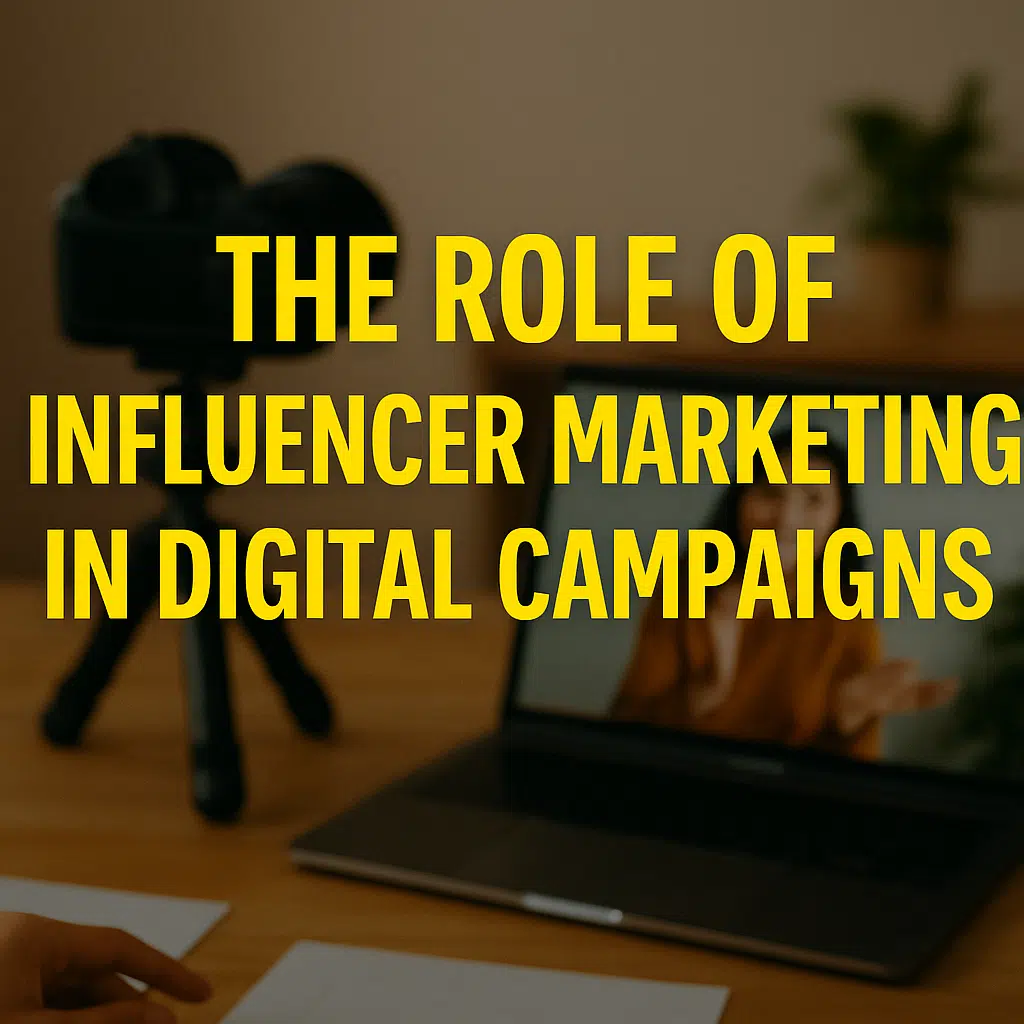The Role of Influencer Marketing in Digital Campaigns
Introduction: The Role of Influencer Marketing in Digital Campaigns
As digital platforms continue to evolve, the role of influencer marketing in digital campaigns has emerged as one of the most impactful strategies for connecting with target audiences. Brands that once relied solely on traditional advertising now harness the trust and reach of influencers to boost visibility, credibility, and engagement. Whether you’re launching a product or promoting a service, influencers have become vital intermediaries between companies and consumers.
By collaborating with individuals who already have an established audience, businesses can build more authentic connections. When done right, influencer marketing drives results far beyond vanity metrics—it fuels conversions, enhances brand perception, and complements broader digital marketing strategies.
Understanding Influencer Marketing in Today’s Landscape
At its core, influencer marketing involves partnering with individuals who have the power to affect purchasing decisions because of their authority, knowledge, or relationship with their audience. These influencers might be YouTubers, TikTok creators, Instagram personalities, or respected bloggers.
What makes the role of influencer marketing in digital campaigns so effective is its ability to seamlessly blend into everyday content. Unlike traditional ads that may interrupt the user experience, influencer marketing in digital campaigns content often feels like a trusted recommendation.
To amplify reach and resonance, influencer campaigns are now an integral part of comprehensive Digital Marketing plans. Businesses use tools like Upfluence or Heepsy to identify influencers that align with their brand values and audience demographics.
Aligning Influencer Strategies with Business Goals
The success of influencer marketing depends heavily on having a clear strategy. Brands must define their goals—whether it’s increasing website traffic, boosting brand awareness, or driving sales—before initiating collaborations. From there, they can determine which influencer tier (nano, micro, macro, or celebrity) suits their needs.
For example, a small business might see strong ROI from partnering with a micro-influencer marketing in digital campaigns whose followers match a specific niche. On the other hand, a nationwide campaign may call for a high-reach influencer with broader appeal. These decisions should be guided by metrics, not just follower counts.
Companies looking to build effective strategies can also lean on expert help, such as our Digital Marketing Services, where we tailor influencer outreach as part of your holistic campaign plan.
Influencer Marketing and Social Proof
Influencers act as living testimonials. Their real-world usage and endorsement of a product or service serve as powerful forms of social proof. Audiences are more likely to trust recommendations from someone they follow and admire than from a branded ad.
Social proof not only builds trust but also reduces hesitation in the buyer journey. Many digital campaigns incorporate user-generated content from influencers into ads, landing pages, and social media to extend the campaign’s lifespan and impact.
Our team integrates influencer-generated content into broader strategies like Social Media Marketing, creating visually appealing and authentic campaigns that capture attention and drive results.
Integrating Influencer Marketing with SEO and Content
One underrated aspect of the role of influencer marketing in digital campaigns is its impact on SEO and content marketing. Influencer blog posts, YouTube descriptions, and social captions often include backlinks to your website, which can improve domain authority and organic rankings over time.
Additionally, the content created during influencer collaborations can be repurposed across your site, newsletters, and paid ad campaigns. This reduces content creation costs while ensuring consistency across platforms.
When paired with our SEO Services and Graphic Design Services, influencer marketing becomes a powerful content-generation engine that enhances both discoverability and brand appeal.
Tracking Performance and ROI
Measuring the effectiveness of influencer marketing is essential. Businesses should track KPIs like reach, engagement rate, referral traffic, conversions, and ROI. UTM parameters, unique discount codes, and affiliate links are all tools that make tracking easier.
Platforms like Google Analytics and social listening tools provide in-depth performance insights. This data helps refine future campaigns and determine which influencers are most aligned with brand objectives.
For deeper analysis and campaign optimization, our team also provides expert support in areas like PPC Services and Web Hosting—ensuring your campaigns run smoothly and generate measurable success.
Conclusion: Why Influencer Marketing Matters Now More Than Ever
The digital world is saturated with content, and standing out requires trust and authenticity. The role of influencer marketing in digital campaigns cannot be overstated. It’s a strategic tool that bridges brands with communities, builds long-term relationships, and delivers real value.
As part of a robust digital marketing approach, influencer collaborations can take your brand from overlooked to unforgettable. Whether you’re just getting started or looking to scale, investing in influencer marketing is investing in connection.





